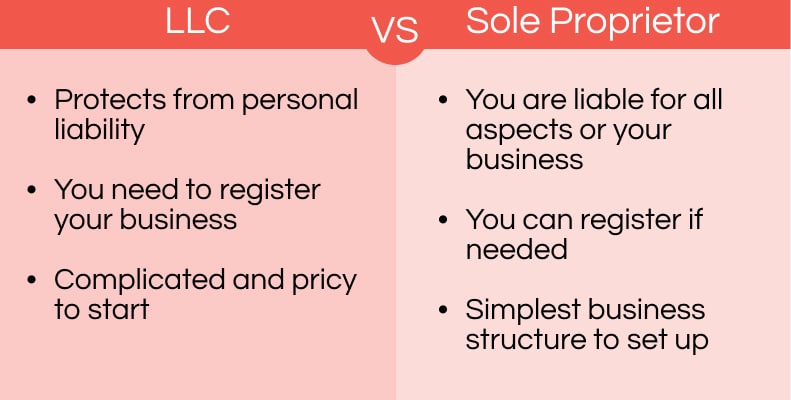Understanding the legal requirements for life coaching is key when you’re starting your business. This guide simplifies those must-know rules to keep your coaching safe and legal. We’re here to help, with straightforward advice on qualifications and business basics. By understanding the legal landscape, you can focus on what you do best: empowering others to achieve their goals.
Table of contents
1. Understanding Life Coaching and Qualifications
Life coaching is a unique and rewarding career that differs significantly from traditional mentoring. It involves a partnership between coach and client to foster personal and professional growth. This section delves into the qualifications and certifications necessary for establishing credibility and trust in your coaching practice.
At its core, life coaching is about helping individuals navigate their path to personal and professional fulfillment. Unlike mentors, who often share advice based on their experiences, life coaches use structured methods to encourage and support their clients’ growth.
Navigating the Qualifications
The legal requirements for life coaching do not typically include formal qualifications, but understanding your niche’s needs is crucial. Some areas, especially those related to health and wellness, may have specific requirements for practice.
While the coaching industry is largely unregulated, obtaining certification from reputable organizations can enhance your practice’s credibility. Certifications are not mandatory, but they can be a significant asset, signaling a commitment to professional development and adherence to industry standards.
2. The Framework of Legal Requirements for Life Coaching
Navigating the legal requirements for life coaching is crucial for setting up a successful life coaching business. This section covers the basics of business registration, legal documents, and the importance of contracts.
Deciding on the right business structure and registering your life coaching practice is crucial. There are 2 good options: you opt for a sole proprietorship or an LLC. Understanding the implications for taxes and liability is important.
Legal Requirements for Life Coaching: Business Registration
Registering your life coaching business is your first step towards starting your business. This process varies by location and business model, but typically involves choosing between a sole proprietorship and a Limited Liability Company (LLC).
Operating as a sole proprietor means you’re personally responsible for all your business’s legal matters. While you can register your business, starting it is generally more straightforward. For a sole proprietorship, the tax responsibilities are straightforward, as profits and losses are directly reported on your personal income tax return. This simplicity allows for easy tax preparation but also means that your income is subject to self-employment taxes in addition to income taxes.
Alternatively, forming a limited liability company (LLC) creates a legal distinction between you and your business, safeguarding your personal assets from business liabilities. However, establishing an LLC involves a more complex and expensive process. An LLC offers flexibility in how it’s taxed; it can be treated as a sole proprietorship, partnership, or corporation, depending on elections made by the LLC members. This flexibility can lead to tax advantages, such as potentially lower overall tax rates and the ability to deduct business expenses, but it may require more complex tax planning and filing.

Sole Proprietorship vs. LLC: What Life Coaches Need to Know
A sole proprietorship is the simplest form of business structure, offering ease of setup and management. However, establishing an LLC might be a wise choice for those seeking personal liability protection. Understanding these options is fundamental to adhering to the legal requirements for life coaching.
Legal Documentation: Safeguarding Your Coaching Practice
Clear legal documents, such as disclaimers, terms and conditions, and privacy policies, are non-negotiable. These documents outline the boundaries of your coaching services and protect both you and your clients, aligning with the legal requirements for life coaching.
While the life coaching industry may not strictly require certification, pursuing accredited certification can bolster your credibility. This section clarifies the certification landscape, helping life coaches understand their options and the related legal requirements.
Crafting a Comprehensive Coaching Contract: Legal Requirements for Effective Life Coaching Contracts
Having clear contracts and privacy policies in place is essential for protecting both you and your clients. These documents outline the scope of your services, payment terms, and how you handle personal data, providing a solid foundation for your professional relationships.
Understanding the legal requirements for life coaching is fundamental for anyone looking to start or grow their coaching business. While this guide provides an overview, consulting a legal expert can offer personalized advice, ensuring your practice complies with all applicable laws and regulations.
Understanding the legal requirements for life coaching is crucial for setting up a successful practice. This comprehensive guide breaks down everything you need to know about business registration, legal documentation, certification, and more, ensuring your coaching business thrives within legal boundaries.
Best Practices and Legal Guidelines for Refunds in Life Coaching
Creating clear refund rules is important for building trust with your customers in the life coaching field. These rules should be easy to understand and follow legal requirements for life coaching to make sure both you and your clients know what to expect. A good refund policy explains when clients can get a refund, how they can ask for a refund, and any deadlines or restrictions. Having these rules helps avoid problems by setting clear expectations. It also shows your clients that your business is fair and honest. This way, both life coaches and their clients feel secure and respected.
Trademarks and Copyright: Protecting Your Life Coaching Brand
Understanding how to protect your intellectual property, including trademarks and copyrights, is essential for life coaches. This protection is crucial for maintaining the uniqueness of your brand and content, following the legal requirements for life coaching.
This guide aims to demystify the legal requirements for life coaching, providing a clear pathway for coaches to establish and protect their businesses legally. With these insights, you’re well on your way to building a coaching practice that not only inspires, but also complies with legal standards.
3. Mastering Legal Requirements for Life Coaching: Essential Strategies
Understanding the legal requirements for life coaching is crucial for coaches aiming to empower their clients while safeguarding their practice from potential legal issues. This guide provides key strategies for adhering to these requirements, emphasizing the importance of clear communication, ongoing education, and comprehensive insurance coverage. By focusing on these areas, life coaches can confidently set up a coaching business legally and navigate the complexities of legal compliance. This allows you as a coach to focus on your core mission of client empowerment.
Legal Requirements for Life Coaches: Crafting Comprehensive Coaching Contracts
The foundation of a legally compliant coaching practice begins with comprehensive coaching contracts. These contracts are pivotal as they clearly delineate the services provided, payment terms, session schedules, and confidentiality policies. Crafting a contract that meets the legal requirements for life coaches sets clear expectations and builds a framework of trust with your clients. It ensures both parties are fully aware of their rights and obligations, preventing potential disputes and reinforcing professional integrity.
Continuing Education to Meet Legal Requirements for Life Coaches
In the ever-evolving field of life coaching, staying informed about legal changes is crucial. Life coaches must commit to continuous professional development to stay abreast of legal updates and best practices. Engaging in accredited courses and legal briefings specifically designed for life coaches ensures that your practice complies with current legal requirements and employs the most effective coaching techniques. This commitment to learning demonstrates to your clients that you are dedicated to providing high-quality, legally compliant services.
Prioritizing Professional Liability Insurance: A Legal Requirement for Life Coaches
Obtaining professional liability insurance is a critical step in meeting the legal requirements for life coaching. Also known as errors and omissions insurance, this coverage is designed to protect life coaches against claims of professional negligence or unintentional harm. Selecting a policy that specifically addresses the unique needs of your coaching practice is essential for legal compliance and provides a safety net, allowing you to focus on delivering impactful coaching sessions with peace of mind.
Enhancing Practice Safety with Additional Coverage: Beyond Legal Requirements for Life Coaches
To further safeguard your coaching practice, life coaches should consider additional insurance coverage. General liability insurance is vital for those conducting in-person sessions, offering protection against physical injuries or property damage. Additionally, as online coaching services become more prevalent, cyber liability insurance is increasingly important. This insurance helps protect against data breaches and secures client information, ensuring your practice meets the highest standards of data security and privacy. While these coverages extend beyond basic legal requirements, they play a crucial role in maintaining a secure and trusted coaching practice.
Conclusion
Adhering to the legal requirements for life coaching ensures your practice is both compliant and professional. This guide has navigated through the crucial steps of establishing a legally sound life coaching business, from registration and documentation to insurance and contract drafting. While this resource provides a solid foundation, always consider consulting a legal professional to tailor these guidelines to your unique situation. By prioritizing the legal aspects of your coaching practice, you can focus on your primary goal: empowering clients to achieve their personal and professional objectives.
Frequently Asked Questions
What are the legal requirements for life coaching regarding certification?
While there is no legal mandate for life coaches to obtain specific certifications, pursuing accreditation from recognized bodies can significantly enhance your credibility and adherence to the legal requirements for life coaching.
Must I register my life coaching business?
Yes, business registration is a key step for life coaches. It makes your business official and can offer legal and tax advantages, depending on how you structure it.
What kind of insurance should a life coach have?
Professional liability insurance is vital for life coaches to guard against claims of harm due to your coaching. Adding general and cyber liability insurance can provide broader protection.
How do I protect my coaching content and brand?
Use trademarks and copyrights to protect your original content and brand identity. This legal step prevents others from using your work without permission.
What should be included in a coaching contract to satisfy the legal requirements for life coaching?
A coaching contract that meets the legal requirements for life coaching should detail the services provided, payment terms, session confidentiality, and cancellation policies, ensuring both coach and client have clear expectations.
